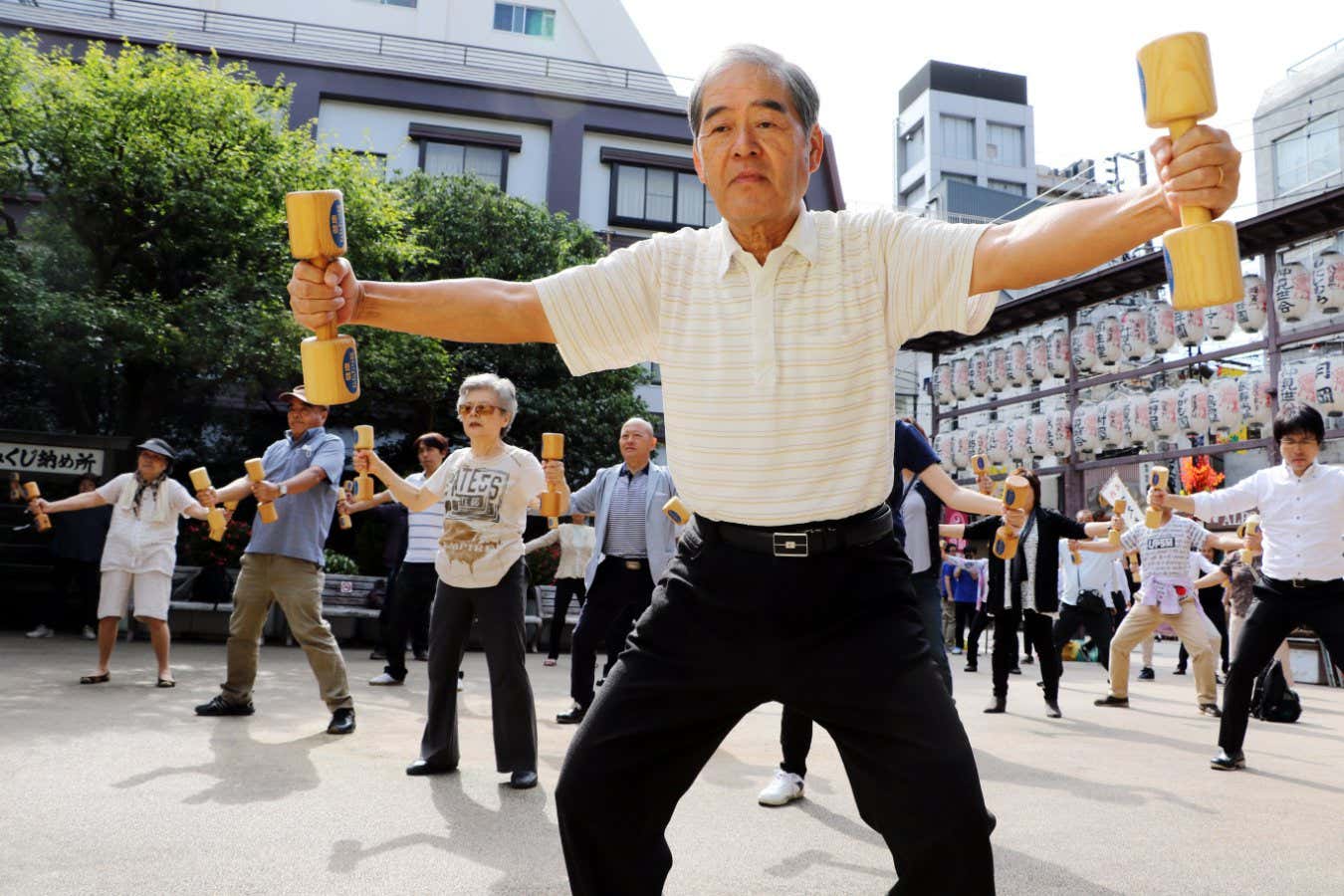
Regular exercise could help keep us sharp
YOSHIKAZU TSUNO/AFP via Getty Images
A structured course of exercise, diet, cognitive challenges and social engagement seems to be particularly effective at warding off cognitive decline, compared with more relaxed self-guided efforts.
The brain’s capacity to remember, use language and solve problems tends to decline with age, often leading to dementia. Yet, research has shown up to 45 per cent of global dementia cases may be preventable by modifying 14 risk factors, such as lack of education, social isolation and traumatic brain injury.
To investigate ways of staving off this decline, Laura Baker at Wake Forest University School of Medicine in North Carolina and her colleagues have been running an investigation called the US POINTER study.
They selected more than 2100 participants who were deemed to have a high risk of cognitive decline because they were between 60 and 79 years old, had a sedentary lifestyle, ate a suboptimal diet and met at least two other dementia-related criteria, such as a family history of memory impairment.
The participants were randomly assigned to one of two regimens, which both aimed to encourage physical and cognitive activity, a healthy diet and social engagement, but went about it in different ways.
One was very structured, with 38 small group meetings over the two years, at which trained facilitators gave out plans. This regimen also involved regular exercise at a community centre, guidelines for following an anti-dementia diet and weekly web-based sessions using brain-training software.
The other group was more self-guided, with just six group meetings over the two years. These participants received publicly available education materials and $75 gift cards that were intended to support a change in behaviour, such as attending gym classes.
Two years later, both groups showed improvements on a cognitive scoring system that tested their memory, executive function and processing speed. The structured group improved by 0.24 standard deviations per year, compared with their average scores at the beginning of the trial, while the self-guided group improved by 0.21 standard deviations per year – a small but statistically significant difference.
“It is impressive that the structured care group did better,” says Gill Livingston at University College London. But she points out the study didn’t involve a control group that received no intervention to compare the structured and self-guided participants against.
Baker says her team has modelled how big a decline in cognitive scores could be expected without either regimen, and estimates the benefit would be significant. “The two-year structured intervention is slowing the cognitive ageing clock by one to nearly two years,” she says.
It is possible both groups improved because they were expecting to get better, a phenomenon similar to the placebo effect, says Baker, and she adds all the participants thought they had been randomised to the group with the best expected outcomes.
Claudia Suemoto at the University of São Paulo in Brazil argues the small difference in cognitive scores between the groups probably wouldn’t be noticeable to the participants or their families. Dementia is also typically a slowly-progressing condition, so it would take longer than two years to see clear effects, she says.
Baker says the US POINTER study has a four-year extension period, so the team will follow some participants for a total of six years. “These are very subtle changes [we’re observing], because they’re cognitively normal people and we’re just slowing down a slow decline over time,” she says. “We’re just really excited about the possibility that you we could take people who are at risk of dementia and we could empower them to take control and responsibility for their own health.”
She also thinks the heavily structured approach could be feasibly applied outside of trials. It’s not about spending a lot of public money to bring about these good habits, but rather about caregivers and medical professionals encouraging people to do them, she says.
“Generally, dementia care is so expensive that reducing its burden would make a cost saving,” says Livingston. “I think this study is important because it shows that lifestyle improvement helps and people did a bit better with guided help, but this does not mean it is the only way to do it.”
Topics:
Source link : https://www.newscientist.com/article/2490103-steadfast-lifestyle-changes-seem-best-to-improve-cognitive-decline/?utm_campaign=RSS%7CNSNS&utm_source=NSNS&utm_medium=RSS&utm_content=home
Author :
Publish date : 2025-07-28 19:00:00
Copyright for syndicated content belongs to the linked Source.











